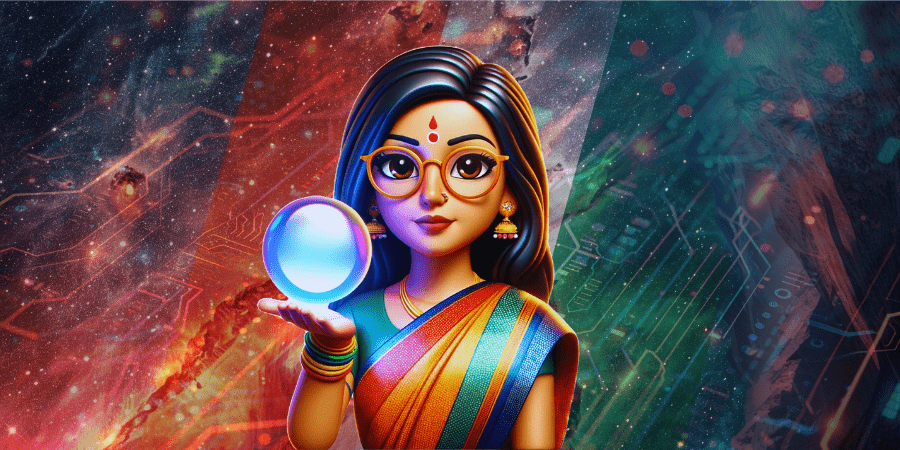India has marked its entry into an exclusive club with the creation of Devika, its first AI software engineer. This groundbreaking development is not just a technological milestone for India but also positions the country as a formidable player in the global AI arena, competing directly with the United States’ Devin, another AI marvel.
Behind Devika’s inception is Mufeed VH, a young Kerala prodigy whose vision and coding prowess have birthed an AI capable of understanding human instructions, generating software code, and fixing bugs autonomously.
This introduction to Devika is not just about celebrating a national achievement; it’s about heralding a new era in software engineering where AI’s role transcends auxiliary functions, becoming an integral part of the creative and developmental process.
As we delve deeper into Devika’s capabilities, inspirations, and future aspirations, we uncover the potential of AI to revolutionize software development, making it more efficient, innovative, and inclusive.
The Genesis of Devika
The story of Devika began with a blend of inspiration and luck rooted in the digital discourse of social media. Mufeed VH, a visionary from Kerala, stumbled upon the concept that would unconventionally lead to Devika’s creation.
A demonstration of Devin, touted as the world’s first fully autonomous AI software engineer developed by Cognition Labs in the US, sparked the initial flame.
Impressed by Devin’s capabilities and the concept of an AI performing software engineering tasks, Mufeed engaged in a playful brainstorming on Twitter/X, contemplating an Indian counterpart to Devin.
The name “Devika” was a moment of whimsical creativity, drawing from the word ‘developer’ and aligning with Indian nomenclature, reflecting a blend of cultural identity and technological ambition. This light-hearted tweet was the seed from which a severe project would grow.
Motivated by the feedback and the conceptual leap from his online musings, Mufeed embarked on a coding marathon. Within an astonishingly short span of 20 hours spread over three days, he turned the idea into reality, giving birth to Devika.
This swift development period underscores Mufeed’s technical proficiency and the agile nature of modern AI development, where ideas can rapidly transition from conception to creation.
The genesis of Devika is a testament to the power of inspiration drawn from global achievements, tailored with a local essence, and executed with unparalleled speed and dedication.
As Devika emerged from its digital cocoon, it was poised to challenge the status quo of software engineering, promising a new dawn of AI-assisted development that marries the prowess of large language models with the nuanced needs of software creation.
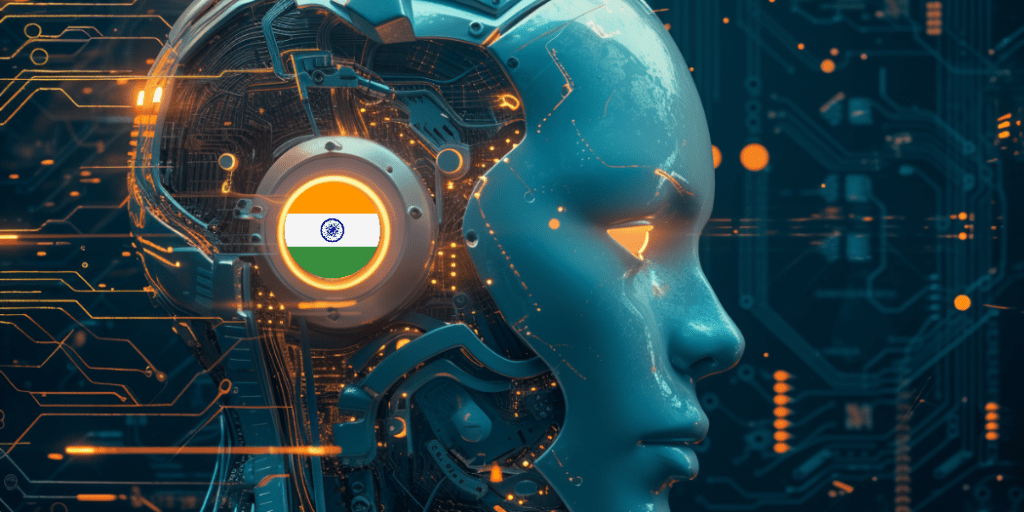
AI Capabilities
Devika represents a significant leap forward in AI-driven software engineering, encapsulating a broad spectrum of capabilities that extend far beyond conventional programming assistance.
At its core, Devika is an AI application designed to translate high-level human instructions into fully functional software.
This process involves several sophisticated steps, including planning, researching, and code writing, all executed with a level of autonomy that closely mirrors human developers.
Devika’s technological backbone comprises an array of large language models, each contributing to a different facet of the software development process.
Among these are Claude from Anthropic, OpenAI’s GPT-4, Meta’s Llama series, Elon Musk’s Groq, and Mistral.
These models are not just databases of information; they are dynamic tools capable of logical reasoning, understanding complex instructions, and generating code based on the vast datasets they have been trained on.
Their involvement in Devika allows the AI to tackle various tasks, from drafting preliminary plans to executing detailed programming tasks and bug fixes. One of Devika’s most striking features is its ability to collaborate with human developers.
It can take on the time-consuming, repetitive tasks often associated with software development, such as boilerplate code, freeing human developers to focus on more complex, creative, or nuanced aspects of their projects.
Devika’s capacity for learning and adaptation also means it can continuously improve its performance, adjusting to new coding practices, languages, and frameworks as they emerge.
Devika’s significance is magnified by its status as an open-source project. This strategic decision by Mufeed VH opens the door for contributions from a global community of developers, ensuring that Devika evolves in line with the needs and insights of a diverse user base.
This contrasts with more proprietary models like Devin, where a single entity controls development. The open-source nature of Devika not only accelerates its development through community contributions but also democratizes access to cutting-edge AI tools for software development.
Tech Ecosystem
Devika carves a unique niche within the tech ecosystem, positioning itself as a crucial bridge between AI’s theoretical potential and practical applications in software engineering.
As India’s first indigenous open-source AI project, Devika stands as a testament to the country’s growing prowess in the global technology landscape.
Its role extends beyond national pride, serving as a beacon for AI’s transformative power in software development.
Devika offers a new paradigm for software developers. It acts as an assistant that can handle the tedious and time-consuming aspects of coding, such as generating boilerplate code and debugging.
This allows developers to dedicate more attention to complex problem-solving and creative aspects of software creation, thereby enhancing productivity and innovation.
As Devika evolves, its ability to undertake increasingly complex software projects without human intervention could redefine the traditional roles and workflows within the software development lifecycle.
Devika’s emergence is particularly significant compared to similar tools developed by tech giants. Companies like IBM, Microsoft, and Amazon have also ventured into AI-powered coding assistants with offerings such as IBM Codenet, GitHub CoPilot, Amazon’s Code Whisperer, Service Now and Hugging Face’s StarCoder.
Devika distinguishes itself by being open-source and embodying a collaborative approach that leverages the collective intelligence of the global developer community.
This stands in contrast to the more proprietary models of its counterparts, highlighting a different vision for the future of AI in software development.
The decision to make Devika an open-source project is strategic, fostering an environment of collaboration and continuous improvement.
This approach enables developers worldwide to contribute to Devika’s growth, suggesting features, improving functionality, and fixing bugs. It also allows for a more rapid iteration cycle, as feedback from a diverse user base can be quickly integrated into new software versions.
Devika’s open-source nature thus ensures that it remains at the cutting edge of technology, reflecting the collective expertise and creativity of a global community.
As Devika continues to develop, it faces the dual challenges of matching the capabilities of more established AI coding agents like Devin and realizing its ambitious goals for multimodal capabilities and autonomous internet browsing and interaction.
These aspirations underscore a commitment to pushing the boundaries of what AI can achieve in software engineering, making Devika a critical player in the ongoing evolution of the tech ecosystem.
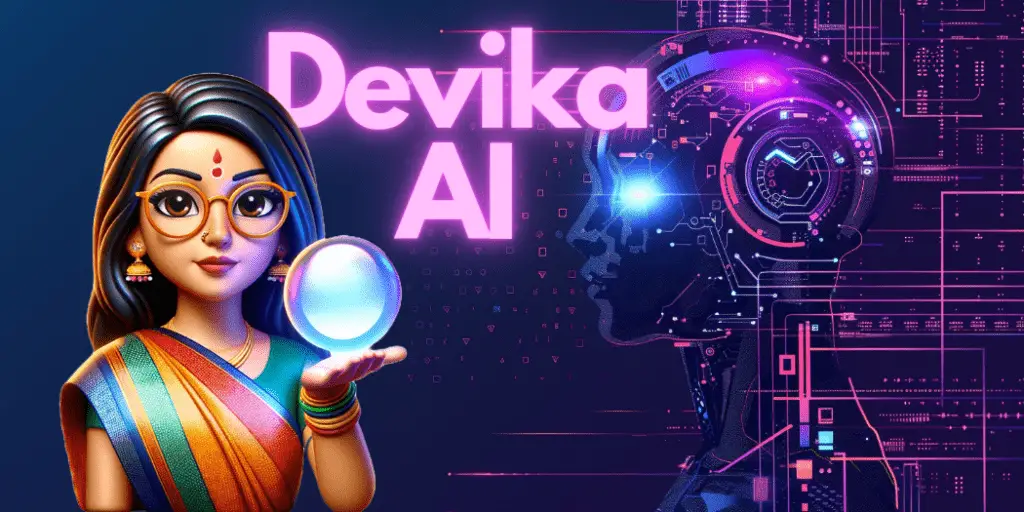
Future Aspirations
Devika’s future aspirations are ambitious and reflect a vision for enhancing its current capabilities and expanding the horizons of what AI can achieve within software engineering.
Mufeed VH, the brains behind Devika, envisions a roadmap that will not only elevate Devika’s performance to match and potentially surpass that of its counterparts, like Devin but also introduce groundbreaking multimodal functionalities that could redefine the interaction between humans and AI in the development process.
One of Devika’s immediate goals is to match the capabilities of Devin, the AI developed by Cognition Labs in the US, which has set a high benchmark in autonomous AI software engineering.
Devin has demonstrated impressive capabilities in software development, becoming a point of reference for AI’s potential in this field.
The Devika team plans to continually enhance the AI’s coding abilities, logical reasoning, and understanding of complex software development tasks to bridge this gap.
This effort will be supported by rigorous benchmarking, including open SWE-bench benchmarks, to transparently compare Devika’s performance against other AI coding agents and provide clear targets for further development.
A key aspect of achieving these aspirations is Devika’s open-source nature, which invites contributions from a global community of developers.
This collaborative approach is expected to accelerate the enhancement of Devika’s capabilities as developers from diverse backgrounds and with various skill sets contribute code, suggest features, and provide feedback.
The open-source model facilitates a rapid iteration process, allowing Devika to evolve more quickly in response to the needs and challenges of software development.
Looking further ahead, Mufeed envisions adding multimodal capabilities to Devika, broadening its utility beyond code generation.
This includes the ability for Devika to understand and interact with different types of input and output, such as creating websites from user wireframes or browsing the Internet to gather information.
Such capabilities represent a significant leap forward, enabling Devika to participate in a broader range of software development tasks and collaborate more closely with human developers.
The long-term vision for Devika includes enabling it to perform autonomous actions on the Internet, such as posting tweets or interacting with web services, without direct human intervention.
This would mark a significant step towards creating a fully autonomous AI software engineer capable of independently managing a wide range of tasks.
While these ambitions are high, they reflect a broader trend in AI development towards creating systems that can operate in the real world with a degree of autonomy and creativity previously reserved for human beings.
Mufeed VH’s vision for Devika is not just about developing an AI that can code; it’s about reimagining the role of AI in software development and beyond.
The emphasis on open-source collaboration and community involvement ensures that Devika will continue to grow and adapt in ways even its creators might not anticipate. As Devika moves towards these future aspirations, it embodies AI’s potential to assist, inspire, and innovate within the tech ecosystem and beyond.
Devika’s journey is a testament to the possibilities at the intersection of human creativity and artificial intelligence, marking a new chapter in the evolution of software engineering.
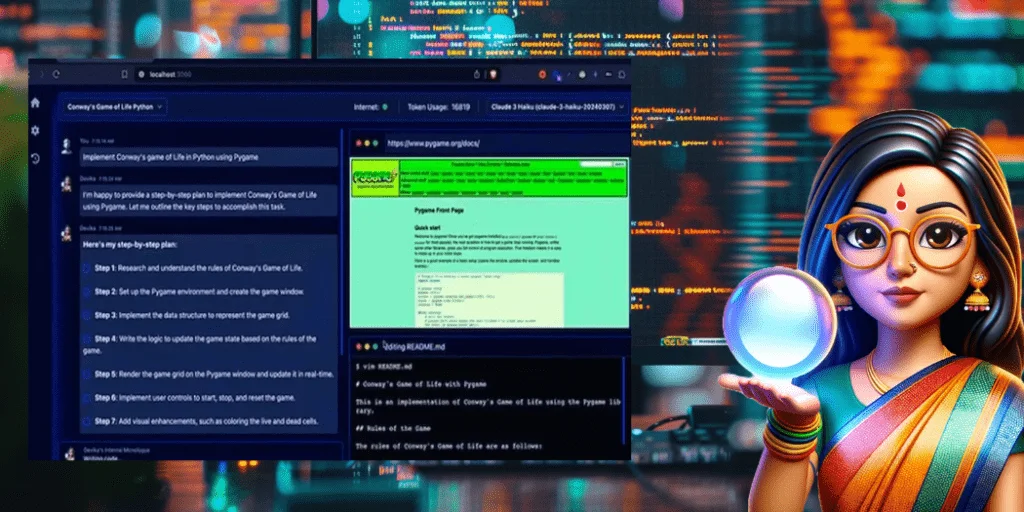
Mufeed VH The Innovator
Mufeed VH, the visionary behind Devika, India’s first AI software engineer, epitomizes the blend of youthful curiosity and technological prowess. From a young age, Mufeed displayed an insatiable appetite for understanding and manipulating the digital world.
Driven by a fascination with hacking video games, his journey into computer science began at the tender age of 13. This early foray into programming laid the groundwork for a distinguished career in technology and cybersecurity.
By 18, Mufeed’s entrepreneurial spirit and technical skills led him to found Lyminal, a cybersecurity consultation company based in Dubai.
This venture marked the beginning of his professional journey, allowing him to apply his skills in a real-world setting and address complex cybersecurity challenges.
His ambition didn’t stop there; Mufeed co-founded Stition Inc., an AI security research company, further cementing his status as an innovator at the intersection of AI and cybersecurity.
At Stition Inc., Mufeed continued to push the boundaries of AI’s application in cybersecurity. The company is developing CodeSentry, an AI agent designed to automate secure code auditing, penetration testing, and red teaming operations.
Coventry represents the culmination of Mufeed’s experience and interest in AI and cybersecurity, promising to revolutionize how organizations secure their digital assets.
The software is in private beta, with plans for a public release, showcasing Mufeed’s commitment to contributing solutions to the tech community.
Mufeed’s creation of Devika was sparked not by a formal project proposal but by a spontaneous idea shared on social media.
This anecdote highlights his ability to connect disparate dots—combining a playful tweet with his technical acumen to create something groundbreaking.
The rapid development of Devika, from concept to code in just 20 hours over three days, exemplifies Mufeed’s exceptional coding skills and his drive to bring innovative ideas to fruition quickly.
Beyond his technical achievements, Mufeed’s work with Devika and CodeSentry underscores a broader vision for the future of technology.
He sees the potential for AI to enhance existing processes and create new ways of interacting with the digital world. His approach to open-source projects like Devika invites collaboration and innovation, reflecting a belief in the power of community-driven development.
Mufeed VH inspires young technologists around the world, proving that age is no barrier to making significant impacts in the tech industry.
His journey from modding video games to pioneering AI-driven software engineering solutions exemplifies the transformative power of curiosity, dedication, and innovation.
As Devika continues to evolve and CodeSentry prepares for its public debut, Mufeed’s influence on the tech landscape is poised to grow, encouraging a future where technology is more accessible, secure, and driven by community collaboration.
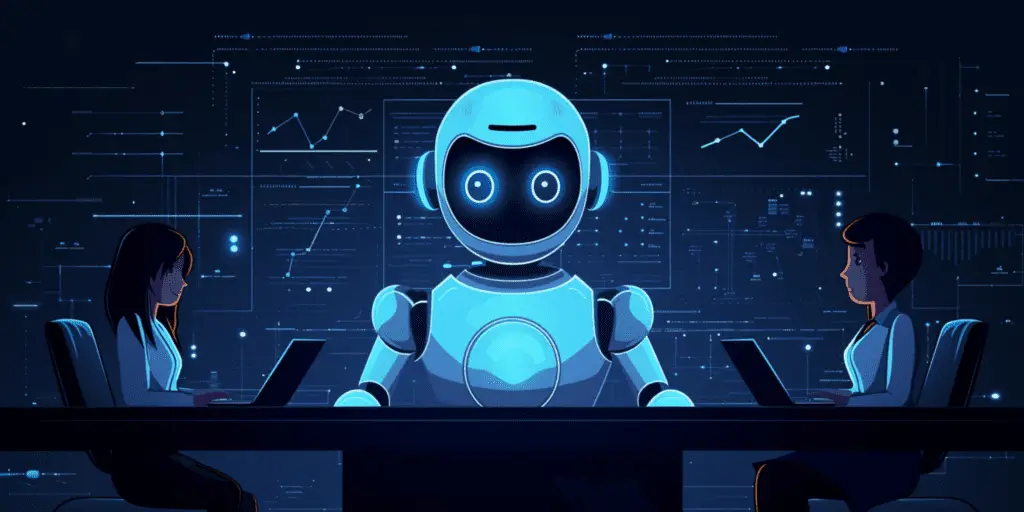
Final Thoughts
The journey, under the visionary leadership of Mufeed VH, marks a significant milestone in the evolution of AI and its application in software engineering.
This innovative project not only showcases the potential of India’s burgeoning tech talent but also sets a new benchmark for global AI development in software creation.
It’s inception, rooted in a playful idea and brought to life through rapid, focused coding, highlights AI’s dynamic and transformative potential in the tech ecosystem.
Mufeed VH’s journey from a young enthusiast tinkering with video game codes to the founder of groundbreaking ventures such as Lyminal and Stition Inc. and the innovator behind Devika serves as an inspiring tale of passion, innovation, and entrepreneurial spirit.
His belief in the power of AI, combined with a commitment to open-source collaboration, points towards a future where technology solves complex problems and does so in a way that is inclusive, accessible, and driven by the community.
Devika’s development journey and future aspirations underscore a critical shift in how we perceive AI’s role in assisting and revolutionizing software development.
By embracing the open-source model, Devika invites a global community of developers to contribute, ensuring its growth and relevance in the fast-evolving tech landscape. This approach accelerates innovation and democratizes access to cutting-edge technology, allowing more people to shape the future of software engineering.
As Devika continues to evolve and Mufeed VH pushes the boundaries of what’s possible within AI and cybersecurity, the tech world stands on the brink of a new era.
It is an era where AI-driven innovation is not just about creating more efficient systems but fostering a collaborative and inclusive environment that empowers everyone to contribute to the technological advancements shaping our world.
Devika and Mufeed VH’s story is a beacon of innovation, collaboration, and future possibilities. It reminds us that in the realm of technology, boundaries are there to be pushed, and the future is a canvas for those bold enough to dream and diligent enough to turn those dreams into reality.
As we look towards the horizon, Devika represents the culmination of one visionary’s journey and a stepping stone towards a more inclusive, innovative, and technologically advanced future.


